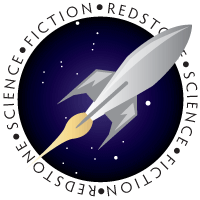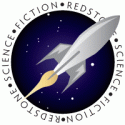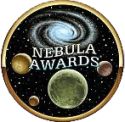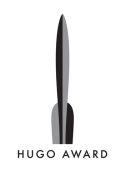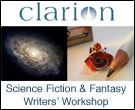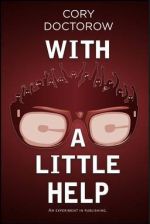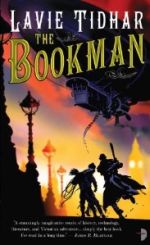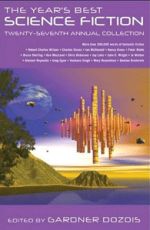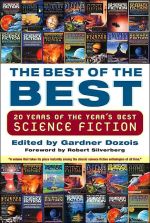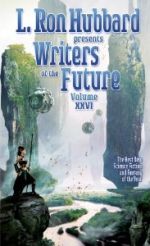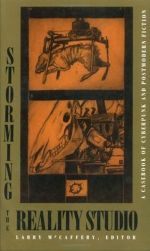Five Questions with Philip Brewer
Many of us who have started writing after having other careers can be encouraged by the recent success you have had publishing short science fiction. In addition to your story with us this month, Like a Hawk in its Gyre, you’ve also recently sold a story to Asimov’s. Congratulations are in order. But first, I have to ask about what sticks out in your bio – your interest in Esperanto. What’s going on there?
Thanks for the kind words!
I came to Esperanto mainly out of an interest in languages. In particular, I was fascinated by the problem of translation. How do you take a text in one language and write a text in another language that means the same thing—not just superficially, but at multiple levels? The problem was, I had no skill whatsoever at learning languages. For me, Esperanto was a solution to that problem—even I could learn to read, write, and speak Esperanto. Then I could indulge my interest in translation.
But once I’d started learning Esperanto, I came to appreciate it for more important reasons. It has made it possible for me to connect with people all over the world that I’d otherwise never have been able to communicate with.
It also appeals to my sense of thrift. I took a business trip once where I attended a meeting with people from all over the world—India, China, France, Germany. The meeting was held in English. I was the only native speaker. What struck me was how much effort each of the other people must have spent learning English as a second language. And, despite what must have been hundreds of hours of study—probably years of classes—most of them didn’t speak English very well. I know that several of them had to wait until the meeting was over and then ask one of their countrymen to explain what had happened.
With a fraction of that effort, we could all have been fluent in Esperanto. The meeting would have been more productive, because more people would have understood what was going on. It would have saved everyone (except me) most of the time and money that had gone into learning English. And that’s the other thing—it made me a little uncomfortable to be the only person there who hadn’t made this huge extra effort to learn a second language.
You worked for years as a software engineer. Tell us a little about that and the role it plays into your writing of science fiction.
I had an early fascination with computers, back when they were refrigerator-sized boxes that only large institutions could afford. I remember when I first started at my first job, thinking, “I sure hope they don’t realize that I’d do this for free, just to get access to the computer.”
I did various things—operating systems, embedded systems—but ended up focusing on computer security for the latter half of my career. It was interesting. Not only did it bring me into contact with some interesting people, but it gave me some insight into how people think. Security is all about obstacles—ideally obstacles that are easy for the right people to get past, but hard for the attacker to get past. But people using computers are all about getting their work done. Even the ones who think they want security turn out to be quite unwilling to take even a little trouble getting past an obstacle. The result is that computer security is really hard. That insight—that even the people you’re serving are working against you—feeds into a lot of my fiction.
Your story is quite subtle in it’s incorporation of speculative technological and biological advances. It all seems quite natural, and disturbing. What influenced you to write this story?
This story springs from a twist on the old question of what to do with someone who knows too much. Instead of killing them, or locking them up forever, what if such a person could credibly commit to never do anything in secret—to live a completely transparent life? Then, everyone who was worried how that knowledge was being used could check and make sure that nothing nefarious was going on. But, of course, it wouldn’t be as easy as that.
Writers often take up the pen (or keyboard) because they have been inspired by favorite writers. What science fiction authors have influenced you and do you see any of their writing in yours?
I’ve been reading science fiction for as long as I could read, starting with Heinlein and Asimov and Clarke, and continuing right along. I hesitate to make a list of people writing today that I like, because once I started it would be tough to stop: Neal Stephenson, William Gibson, Ian Banks, Cory Doctorow, Charles Stross, Kim Stanley Robinson, Karl Schroeder, Tobias Buckell. . . . And that’s without mentioning any of the writers who taught at my Clarion class—or any of my fellow students, who were also a big influence.
What stories can we expect to see from you in the future, and what are you working on now?
I’ve got several stories almost ready to go to editors—one about a computer security problem at a hospital, and another about the employment problems of a long-retired spy who’s been given his youth back. I’m currently at work on something that’s kind of a space opera—I’m taking some liberties with the laws of physics, but trying to stick with the laws of economics.
Thanks so much for taking the time to let our readers know a little more about you. We look forward to seeing more of your work.
January 31, 2011 2 Comments

